The U.S. government is preparing to make moves to get food dyes out of what we eat– a plan which may spark curiosity across the nation as to what the potential health risks of artificial food dyes are.


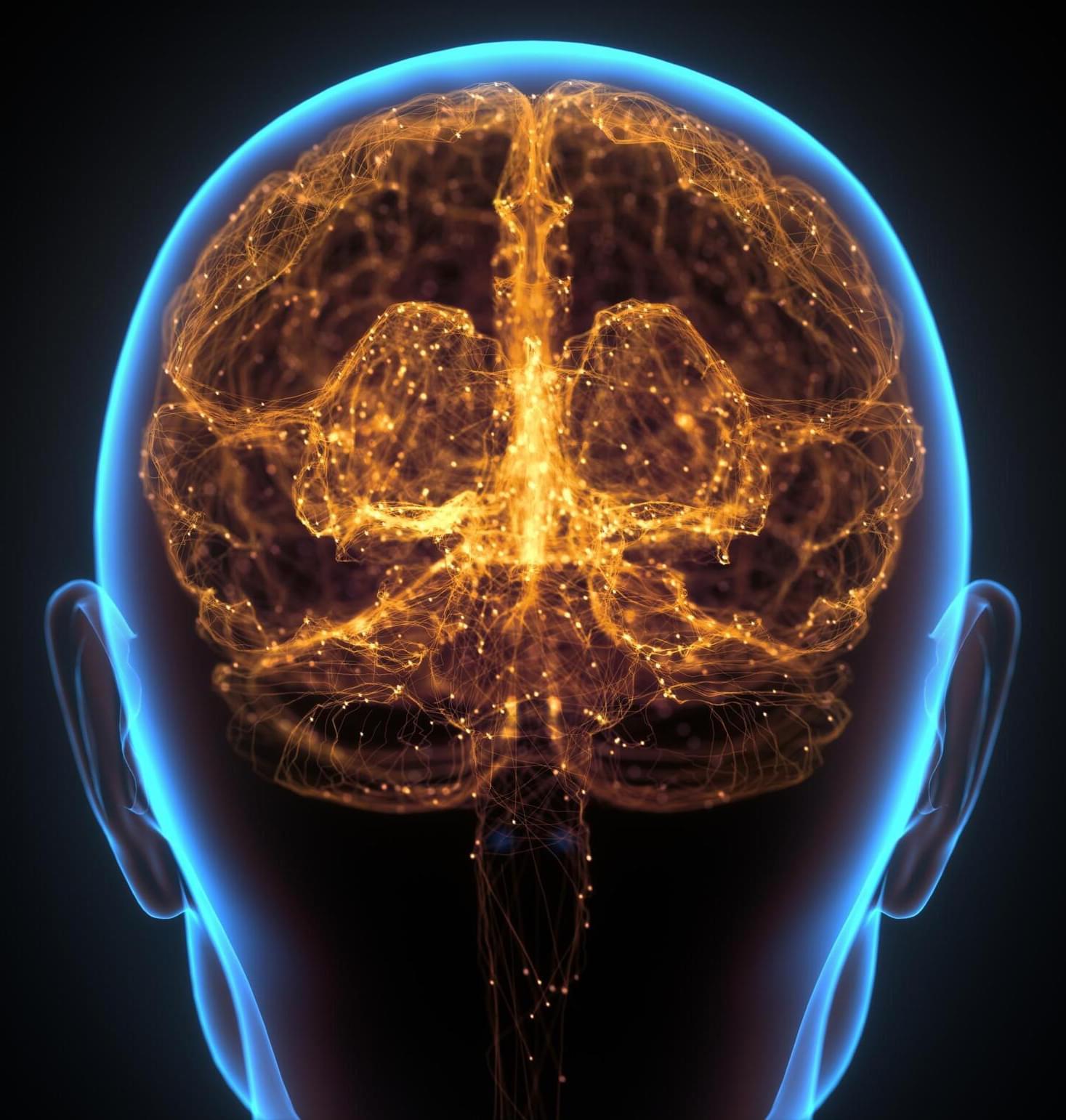
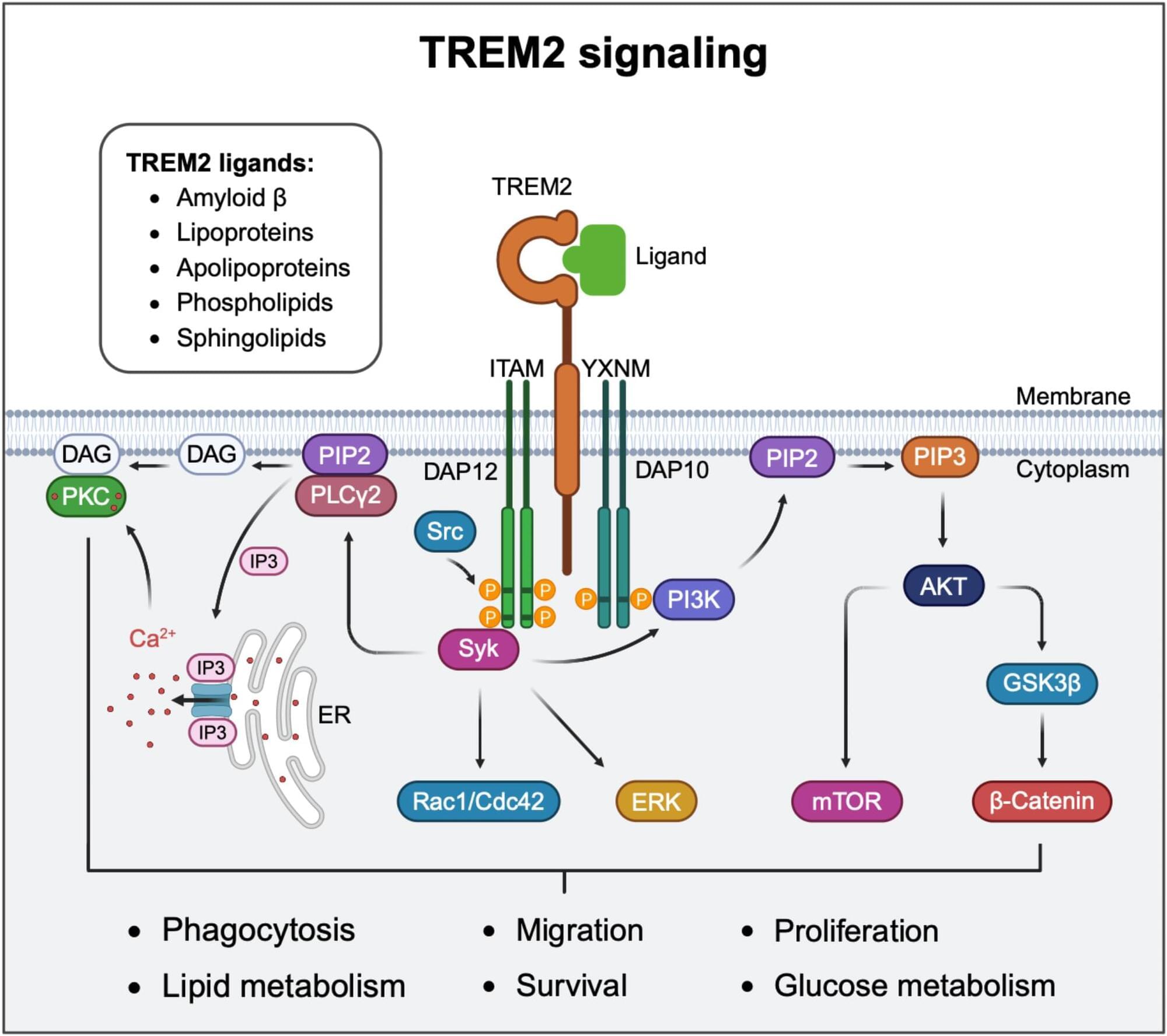
The metabolic fitness of microglia is markedly impaired in TREM2 knockout (KO) models [58]. TREM2, through its adaptors DAP12 and DAP10, activates the mechanistic target of rapamycin (mTOR) signaling pathway, which plays a crucial role in regulating metabolic pathways and protein synthesis [11, 58]. Loss of TREM2 impairs mTOR activation, leading to reduced ATP production and biosynthesis. In vivo FDG-PET imaging of TREM2 KO and TREM2 T66M knock-in mice shows a significant reduction in cerebral glucose metabolism [67, 68]. This decrease may correlate with impaired glucose uptake by microglia. Supporting this, ex vivo measurements of isolated microglia from TREM2 KO animals reveal lower FDG uptake [68].
Given the pivotal role of microglial metabolism in AD, targeting this process represents a promising therapeutic strategy. Agents such as interferon-γ (IFN-γ) and cyclocreatine, which enhance ATP production, have been shown to restore microglial functions and mitigate AD pathology [58, 65]. Notably, TREM2-activating antibodies boost microglial energy metabolism by promoting mitochondrial fatty acid and glucose oxidation [69]. Moreover, translocator protein (TSPO)-PET and FDG-PET imaging have demonstrated that TREM2 activation enhances microglial activity and glucose metabolism in amyloid mouse models. Thus, targeting TREM2 and microglial metabolism may complement existing AD therapies, which primarily focus on amyloid clearance and synaptic dysfunction, providing a more comprehensive approach to disease intervention.
Lipid metabolism is crucial for maintaining microglial functions and CNS homeostasis, influencing cellular membrane integrity, energy storage, and inflammatory responses. Emerging evidence identifies TREM2 as a key regulator of lipid metabolism in the brain. TREM2 binds a diverse range of lipids, including anionic and zwitterionic species such as sphingomyelin, phosphatidic acid, phosphatidylinositol, phosphatidylcholine, phosphatidylglycerol, phosphatidylserine (PtdSer) and sulfatide [49, 53, 70]. Among these, PtdSer is the most abundant negatively charged phospholipid in the inner leaflet of the plasma membrane in eukaryotic cells [71]. In neurodegenerative conditions, PtdSer externalization on damaged or apoptotic neurons serves as an “eat-me” signal, triggering TREM2-dependent microglial synaptic pruning and cell clearance [72]. Super-resolution microscopy and in vivo imaging studies have demonstrated that Aβ oligomer-induced hyperactive synapses expose PtdSer, marking them for TREM2-mediated engulfment, which helps mitigate neuronal hyperactivity in AD models. Additionally, individuals carrying TREM2 loss-of-function variants exhibit an accumulation of apoptotic-like synapses [72], underscoring TREM2’s essential role in synaptic homeostasis during early AD pathology. Beyond synaptic pruning, TREM2 facilitates the recognition and clearance of damaged cells. Notably, over-expression of TREM2 in non-phagocytic cells, such as Chinese hamster ovary (CHO) and HEK293 cells, enables them to engulf apoptotic neurons, highlighting TREM2’s function in lipid sensing and phagocytosis [16, 73]. This broad lipid-binding capability underscores TREM2’s critical role in modulating microglial responses to neurodegenerative insults and preserving neuronal health.

Saying one thing while feeling another is part of being human, but bottling up emotions can have serious psychological consequences, such as anxiety or panic attacks. To help health care providers tell the difference, a team led by scientists at Penn State has created a stretchable, rechargeable sticker that can detect real emotions—by measuring things like skin temperature and heart rate—even when users put on a brave face.
The researchers recently unveiled the wearable patch that can simultaneously and accurately track multiple emotional signals in a study published in the journal Nano Letters.
“This is a new and improved way to understand our emotions by looking at multiple body signals at once,” said Huanyu “Larry” Cheng, the James L. Henderson, Jr. Memorial Associate Professor of Engineering Science and Mechanics at Penn State and lead author of the paper.
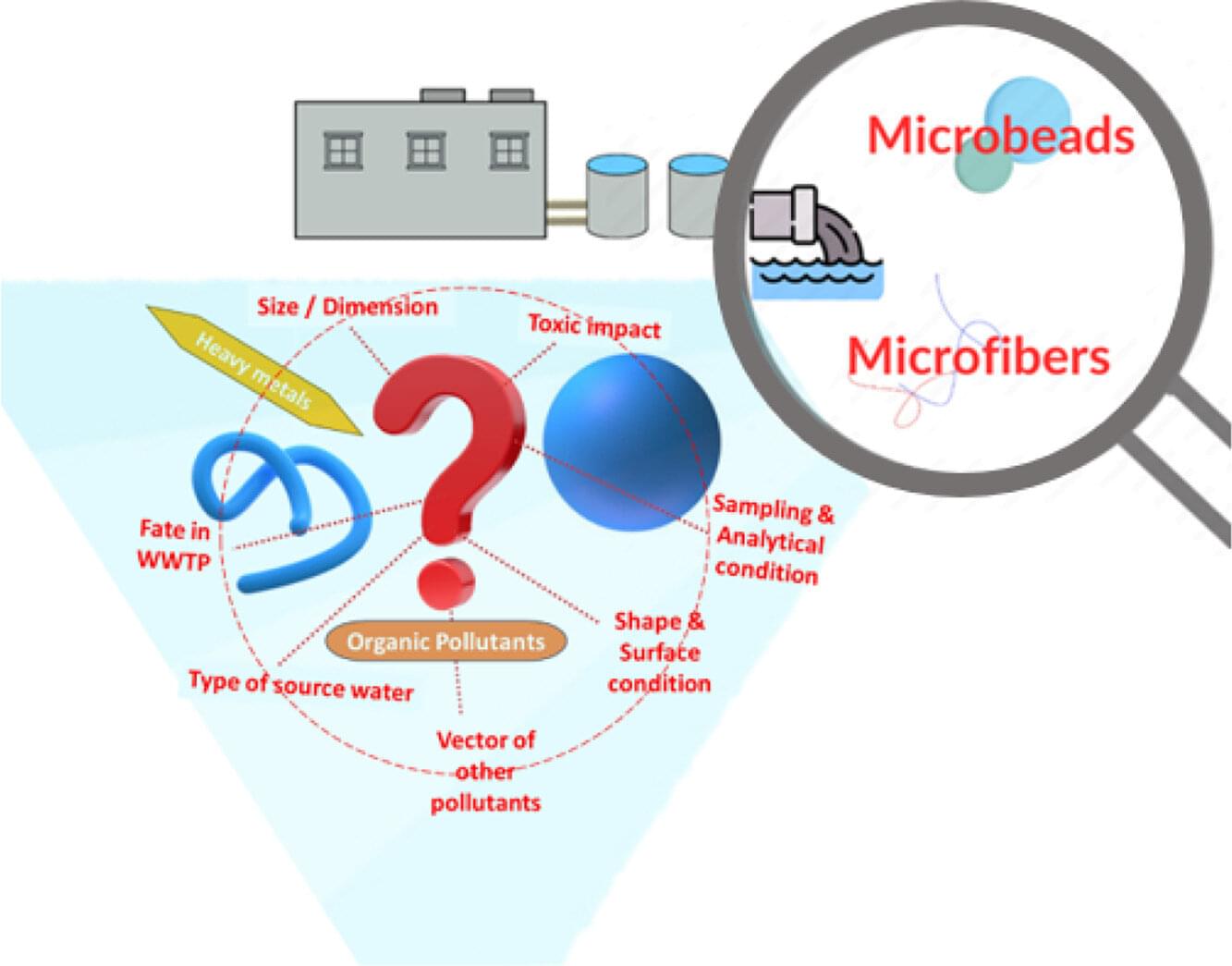
Despite advances in wastewater treatment, tiny plastic particles called microplastics are still slipping through, posing potential health and environmental hazards, according to new research from The University of Texas at Arlington.
Because plastic is inexpensive to produce yet lightweight and sturdy, manufacturers have found it ideal for use in nearly every consumer good, from food and beverage packaging to clothing and beauty products. The downside is that when a plastic item reaches the end of its useful life, it never truly disappears. Instead, it breaks down into smaller and smaller pieces called microplastics—particles five millimeters or less, about the width of a pencil eraser—that end up in our soil and water.
“What our systematic literature review found is that while most wastewater treatment facilities significantly reduce microplastics loads, complete removal remains unattainable with current technologies,” said Un-Jung Kim, assistant professor of Earth and environmental sciences at UT Arlington and senior author of the study published in Science of the Total Environment.
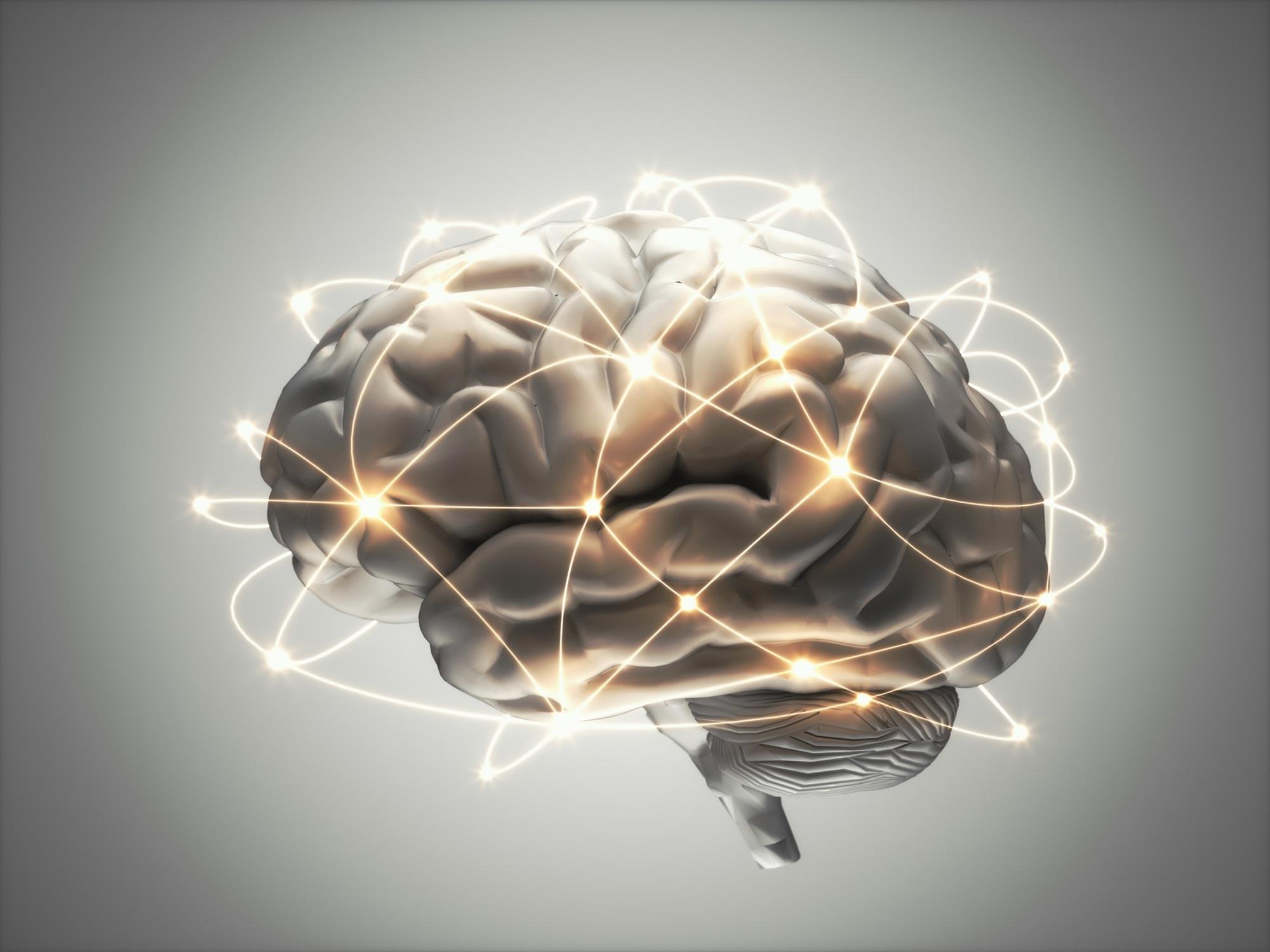

The 2024 WHO BPPL is a key tool for prioritising research and development investments and informing global public health policies to combat AMR. Gram-negative bacteria and rifampicin-resistant M tuberculosis remain critical priority pathogens, underscoring their persistent threat and the limitations of the current antibacterial pipeline. Focused efforts and sustained investments in novel antibacterials are needed to address AMR priority pathogens, which include high-burden antibiotic-resistant bacteria such as Salmonella and Shigella spp, N gonorrhoeae, and S aureus.

Collaborative use of population-level health data and artificial intelligence is essential for achieving precision health through a learning health system. Two groundbreaking initiatives—the European Health Data Space (EHDS), covering 449 million EU citizens, and Germany’s forthcoming Health Data Lab, providing access to data from 75 million insured individuals (90% of the country’s population)—offer unprecedented opportunities to advance digital health innovation and research with global impact.
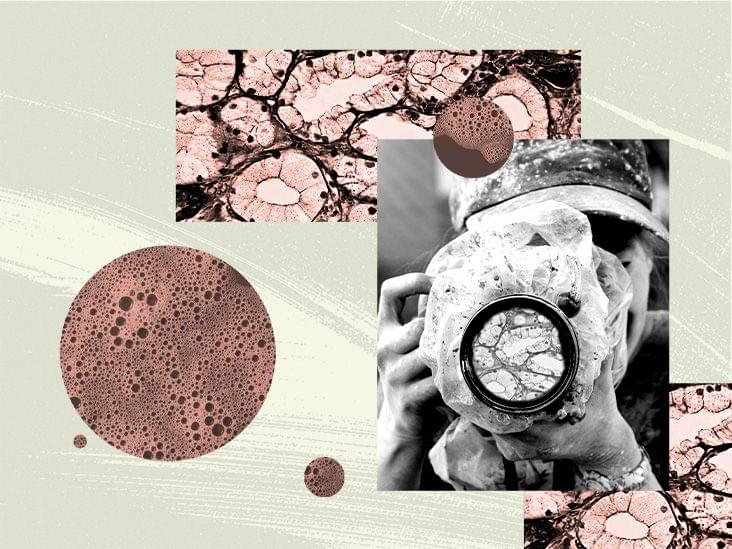
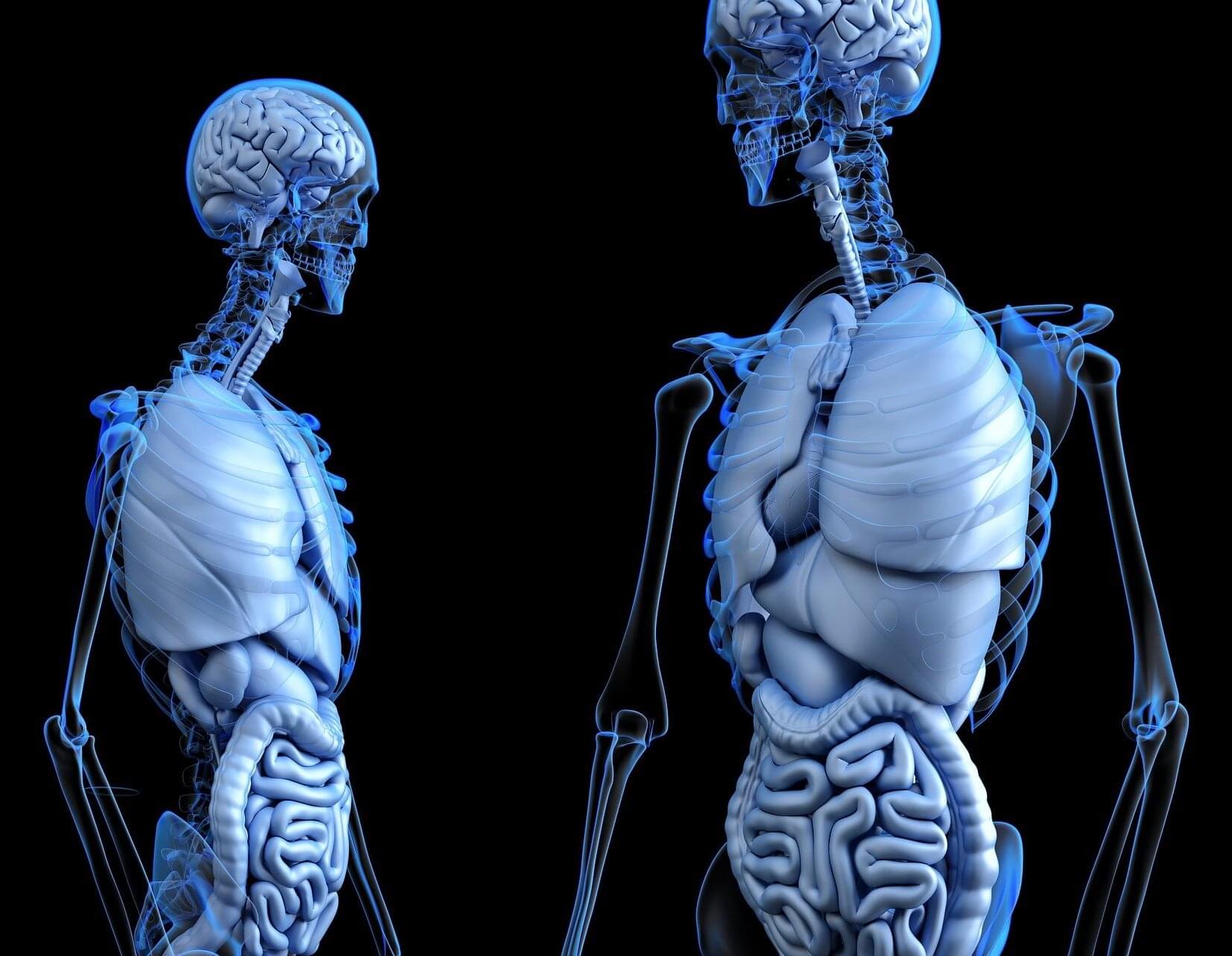
A new USC study suggests that gut imbalances in children with autism may create an imbalance of metabolites in the digestive system—ultimately disrupting neurotransmitter production and influencing behavioral symptoms.
The research, published in Nature Communications, adds to a growing body of science implicating the “gut-brain” axis in autism. The discovery raises the possibility of new treatment avenues. It’s an example of how research at USC, and other universities, drives innovation and leads to discoveries that improve lives.
“We demonstrated that gut metabolites impact the brain, and the brain, in turn, affects behavior. Essentially, the brain acts as the intermediary between gut health and autism-related behaviors,” said first author Lisa Aziz-Zadeh, a professor at the Brain and Creativity Institute at the USC Dornsife College of Letters, Arts and Sciences.